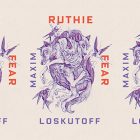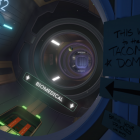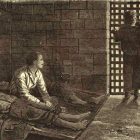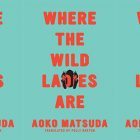Now Is Not the Time to Panic’s Exploration of Meaning
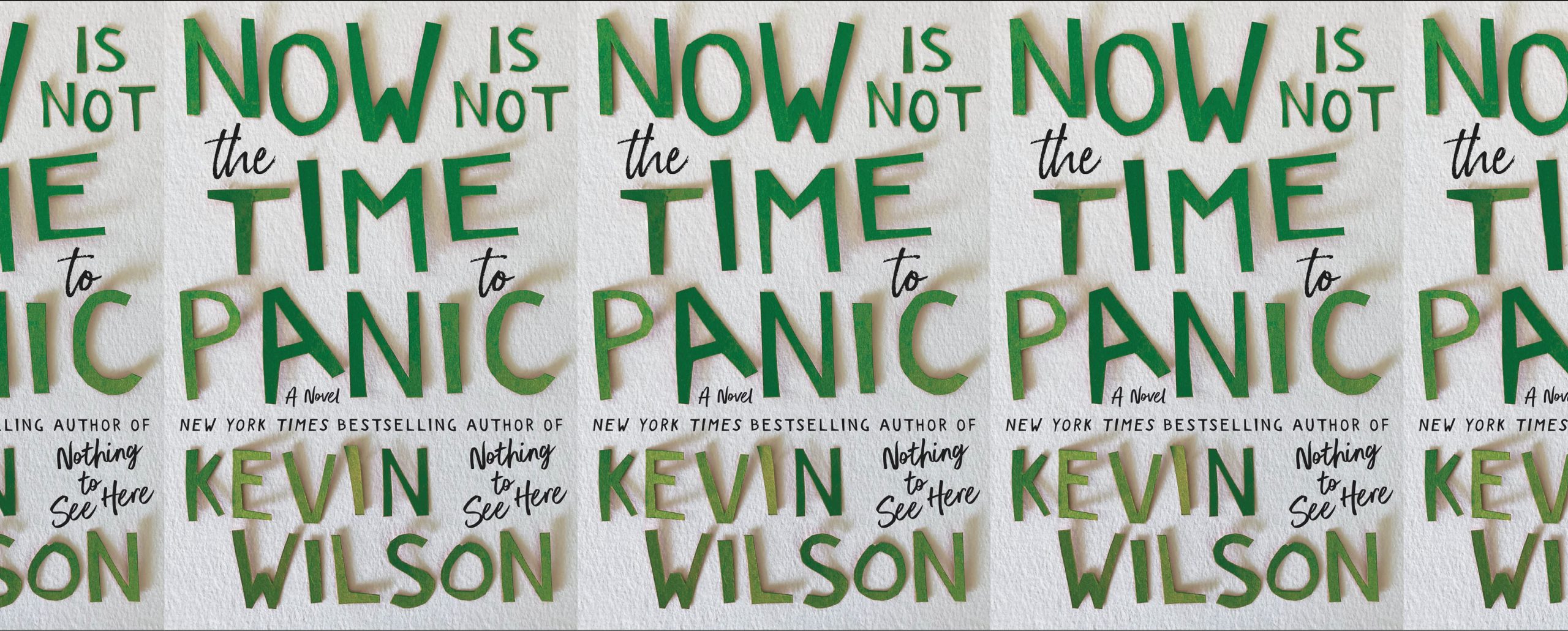
Kevin Wilson’s latest novel, Now Is Not the Time to Panic (out today), revolves around a phrase that the protagonist, Frankie Budge, conjures the summer of 1996 when she is sixteen: “The edge is a shantytown filled with gold seekers. We are fugitives, and the law is skinny with hunger for us.” Frankie is an awkward, friendless teenager whose dad has just left her mom for his secretary, who he moves north with shortly before she gives birth to another daughter whom he also names Frances. In his absence, home in tiny Coalfield, TN, with her mom and eighteen-year-old triplet brothers, Frankie thinks, “I lived inside myself way more than I lived inside of this town.” Then Frankie meets Zeke, a fellow awkward teenager who is in town for the summer while his mom regroups after discovering Zeke’s father’s rampant cheating, and the two decide to dedicate their days to making art with each other. Zeke and their quest draws Frankie outside of herself, and the words that come to her are a sort of revelation. “I knew that this little voice, this tiny, insistent voice, was not God and it wasn’t some muse and it wasn’t anyone in the world except for me,” she thinks when the phrase enters her mind. Though it is somewhat related to the novel she is working on about an evil Nancy Drew who has a place she refers to as “the edge,” it is mostly just a phrase Frankie imbues with meaning over time. “It didn’t mean a lick of sense,” Frankie thinks. “It meant nothing.” Yet it is a code that bonds Frankie and Zeke, fellow loners finding shared understanding even in the meaningless words.
This friendship is particularly impactful for Frankie since Zeke is the first friend she’s had in a great while, having first drifted from her boy- and shopping- obsessed peers then finding herself further isolated by her dad’s departure. On a poster, around Frankie’s words Zeke draws power lines; “beautiful little shacks, a whole row of them, the roofs falling in”; “an old burned out car”; “a wild pack of dogs”; four beds with “multiple children twisted up in their sheets”; and—most distinctive of all—two nearly glowing disembodied hands that look as if they are reaching for the children. They fleck the paper with their own blood. The poster is eerie and inexplicable, devoid of meaning except the allure of its greatness, felt strongly by Frankie and Zeke. “It felt like something was at stake,” Frankie says, later elaborating, “Okay, yes, we were going insane, maybe. We’d kissed and our prudish brains couldn’t handle it, so we invented some mantra that would unlock the mysteries of the universe. We’d created meaning where there was none, but, I don’t know, isn’t that art?…Meaning would have to come later.” Their summer plan has come to fruition more powerfully than they’d imagined through their act of creating. Using the copier Frankie’s eighteen-year-old triplet brothers stole from their high school, they make dozens of copies, the first of hundreds they’ll make in the coming weeks.
When they begin putting their posters up all over town, Zeke is filled with anxiety while Frankie is exhilarated. “We were so exposed. But no one cared,” she observes. “We were invisible.” It’s a feeling Frankie’s long since felt, and she doesn’t let it diminish the boldness she feels by putting up the poster. They ultimately hang their first poster in a Wal-Mart. “Zeke seemed pretty nervous, constantly looking around to see if anyone noticed us, even though nobody cared,” Frankie says. This sense of invisibility unites and empowers them, overriding the brokenness they feel from their absent fathers. “For Zeke and me, well-behaved dorks, it was amazing. And we were together,” Frankie says. “We hadn’t even made out. We were too interested in the copies. Each time we looked at each other, we were holding up another copy of our art, affixing it to the world. It felt important to us. We were important.”
When the posters begin to be noticed, the power of their art in the world begins to shift dramatically, becoming more complicated and convoluted. Frankie and Zeke paper the walls of an abandoned house where other teenagers go to party. One intoxicated couple who drifted off to have sex fall asleep and make up a story, inspired by the poster, to cover up the truth. They tell their parents, then reporters, that three fugitives in a black van took them to a shack where they held them hostage and forced them to take drugs. “I knew that they were just the dumbest kids, trying anything to avoid punishment,” Frankie says, “but I chose to believe that the poster, because of how beautiful it was, how strange it was, had opened up some little part of their brain, and it gave them a story that would put them in danger even though they thought it would keep them safe.” The story is ludicrous, unbelievable, and yet people let themselves be swept into the narrative, which now gives some rationale behind the mysterious posters, just as Frankie chooses to believe there’s beauty in the teenagers’ making up this story from her and Zeke’s art.
So begins The Coalfield Panic of 1996. The couple’s story makes the front page with the headline “Evil comes to Coalfield.” The police get involved. Zeke starts to panic. “I knew that he was jumpy, had some anxiety. I had it, too,” Frankie thinks, “but I think I’d had a head start on unhappiness, on being disappointed by people who supposedly loved you, and so I had settled into it a little more. I did not feel guilt for the weird things inside of me anymore. I was a fugitive, and I was not ready to be caught yet.” As the poster rises in prominence, the words become increasingly more a part of how Frankie thinks of herself and her place in the world. She begins embracing herself more and letting go of the void her father fills with his absence. Zeke reacts differently, and their relationship to the poster and each other starts to diverge. When Frankie dismisses the teenagers’ story for dumbness, Zeke says, “’Yeah, I get it. But, like, that’s worse. Them being so stupid is what’s scary because now it’s this whole thing.’” Frankie focuses on the beautiful thing they made together, while Zeke increasingly sees its potential for danger. People come up with all sorts of interpretations for the poster, and they tend to see in it something evil and dangerous. “‘Now is not the time to panic,” the county sheriff says, “’but, also, there seem to be dark forces at play, and I will do everything in my power as an upholder of justice to root them out and send them as far from Coalfield as is humanly possible.’” The community lunges at the opportunity to unite against evil despite the dubious story and because of the relief this story provides with an explanation.
The town is soon flooded with people who are curious about the poster. Sightings across the country and the world are reported. Other people start putting up the posters, too, which are sometimes copies of Frankie and Zeke’s and sometimes modifications. One person climbs a water tower to put up a copy and dies when he slips and falls. People get shot accidentally by members of the “Poster Posse,” men who use the posters as an excuse to hang out and drink together. “So many people in Coalfield had guns, knives, fucking compound bows. They liked to show them off even when nothing was at stake,” Frankie says. “It seemed inevitable that someone was going to get hurt in a spectacular way, and I could feel the weight of that, but it wasn’t like I could stop anything. If I admitted what we’d done, what would change? Would anyone even believe us?” No matter how famous the poster has become, Frankie’s invisibility hasn’t changed, and she recognizes that she holds no power over other people—that people, like she and Zeke, will make the meaning they’re seeking.
So they stay silent, and they keep putting up the posters until their disastrous trip to Memphis, Zeke’s hometown, where Zeke has a violent confrontation with his father then attempts to sexually assault Frankie. Although he stops when she tells him to, the schism between them has widened, and the next day, Frankie learns that Zeke and his mom are returning to Memphis and his father. When Frankie—devastated that their connection is being destroyed—confronts him, he, seemingly accidentally, pushes her down the stairs, and her arm snaps in half. Still, she manages to drive herself back home, where she intentionally crashes her car into a tree to cover up her broken arm. She cannot imagine explaining it, and is more broadly at a loss for how to characterize the events of her summer and how much it has changed her.
When school resumes, Frankie is back to being invisible, but her words are all around her. She finds herself, for the first time, propelled past her awkwardness. She goes to college, gets married, has a daughter, publishes books. She also continues to put up the poster, one at a time, when she needs to ground herself.
Twenty years elapse and Frankie hears nothing from Zeke, but when a New Yorker writer calls Frankie, having discovered the poster’s origins, Frankie sees that her art has extended beyond her once again, in a new way that holds danger—the danger of destroying her family and her marriage, and impacting her mother, who still lives in Coalfield. She decides she must see Zeke again before the news breaks, to share this secret with him once more. When she finds him, “He looked like he was one of two things,” Frankie says, “a man who made coffee tables from reclaimed driftwood and sold them for three grand, or a man who was very, very suspicious of the circumstances of 9/11.” Like many things in our teenage years, Frankie recognizes in this moment that the bond that once seemed unshakeable has passed; their shared understanding of art, and of the way in which they could both invisibly exist in the world and affect it, has ended along with their togetherness. “I didn’t need him to do another blood pact,” Frankie realizes. “Did I want it? I did. I wanted it just so that I could feel that thread that connected me to the past. Is that why we do anything in this life? To feel it vibrate along the line that starts at birth and ends way way way after we die?” In the end, Frankie alone takes responsibility for the poster, shielding Zeke from the fallout at his request, and anyway, he is no longer part of the vibration. Her phrase made her who she was, something she could keep to herself or share, and Zeke was only a part of that path.
